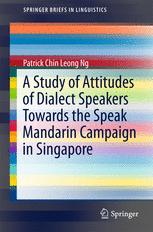

Most ebook files are in PDF format, so you can easily read them using various software such as Foxit Reader or directly on the Google Chrome browser.
Some ebook files are released by publishers in other formats such as .awz, .mobi, .epub, .fb2, etc. You may need to install specific software to read these formats on mobile/PC, such as Calibre.
Please read the tutorial at this link: https://ebookbell.com/faq
We offer FREE conversion to the popular formats you request; however, this may take some time. Therefore, right after payment, please email us, and we will try to provide the service as quickly as possible.
For some exceptional file formats or broken links (if any), please refrain from opening any disputes. Instead, email us first, and we will try to assist within a maximum of 6 hours.
EbookBell Team

4.0
36 reviewsThis book makes an original contribution to the fields of sociolinguistics, language planning policy and Chinese language studies. It examines the effectiveness of the Singapore’s Speak Mandarin Campaign in changing the language use of dialect speakers towards Mandarin.Singapore may be only “a small red dot” and barely visible on the world’s map. However, its complex and dynamic linguistic diversity and its quadrilingual educational system make it a unique and fascinating research site for examining deliberate language planning on the part of governmental authorities. 2016 marks the 37th anniversary of the Speak Mandarin Campaign, a focused language-planning policy aimed at changing the deeply entrenched sociolinguistic habits of Chinese Singaporeans who are used to speaking Chinese dialects. This book provides a revealing update on dialect speakers’ attitudes towards the campaign by including discussions and other related issues such as the recent call for the revitalisation of Chinese dialects by younger dialect speakers, Chinese students’ attitude towards learning Mandarin in schools, the encroachment of English in the home environment, the spread and dominance of English in the local linguistic landscape, and the challenges of maintaining Mandarin as a language of use and preference.